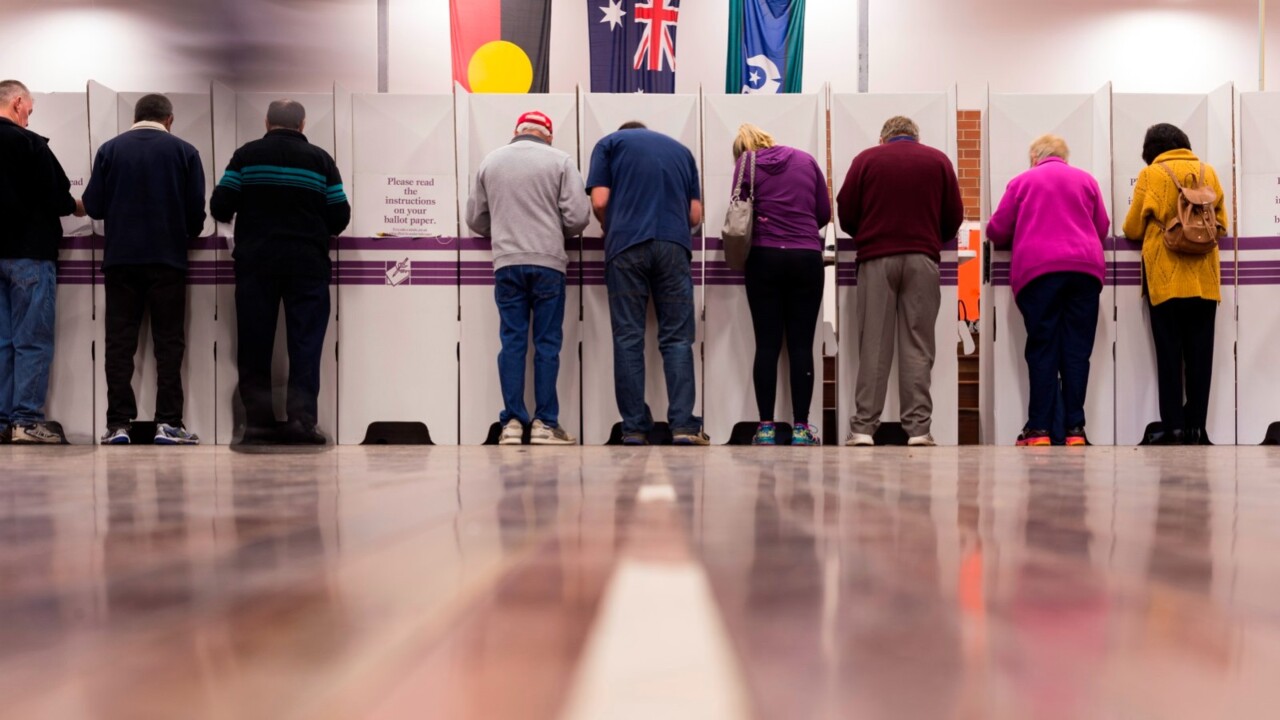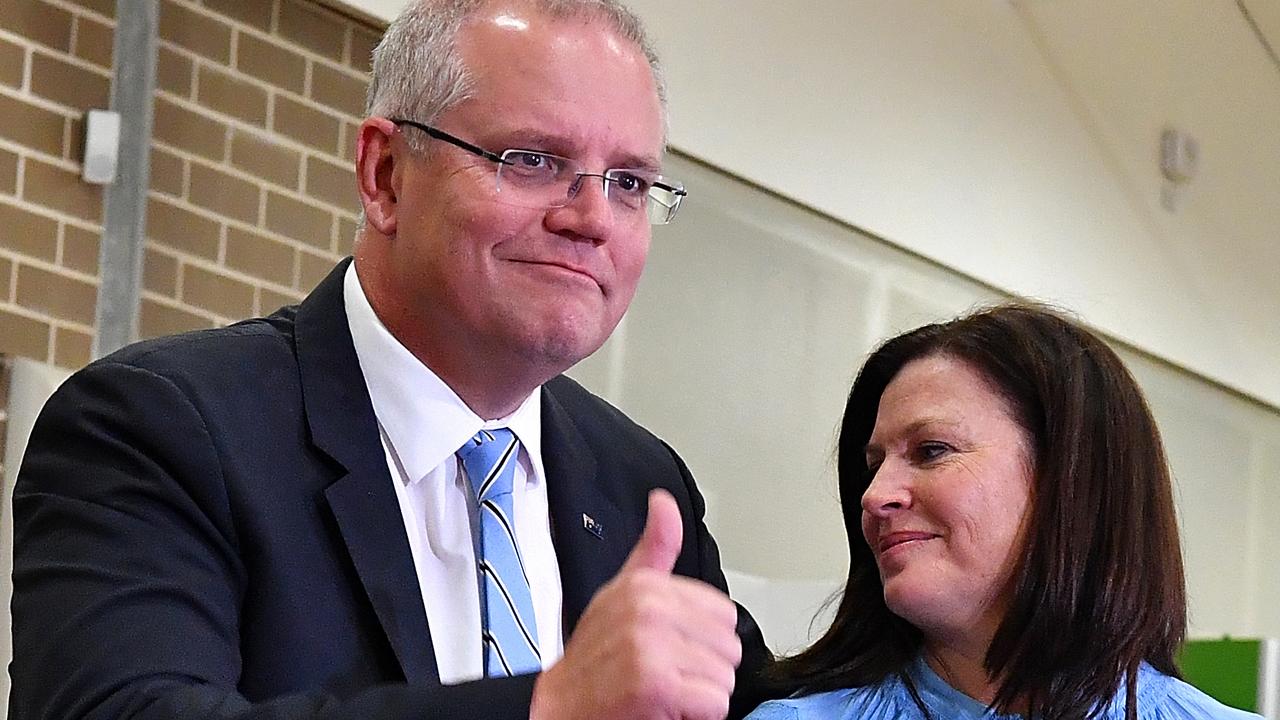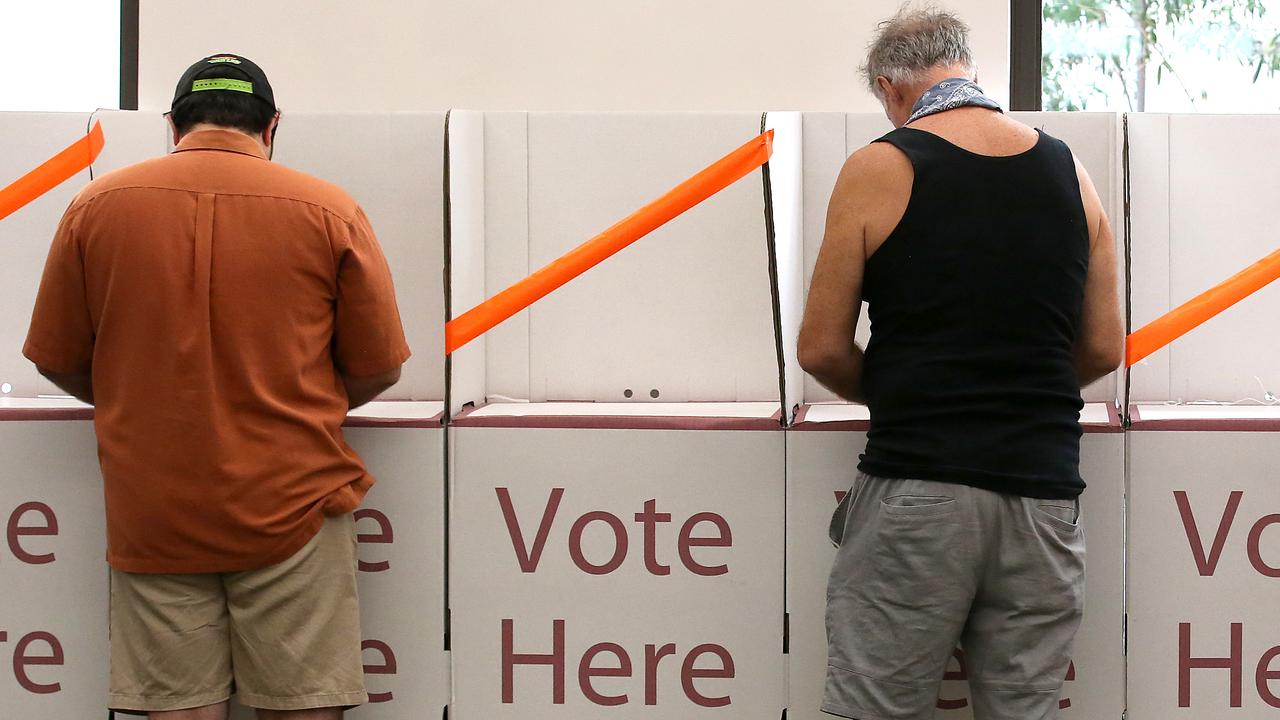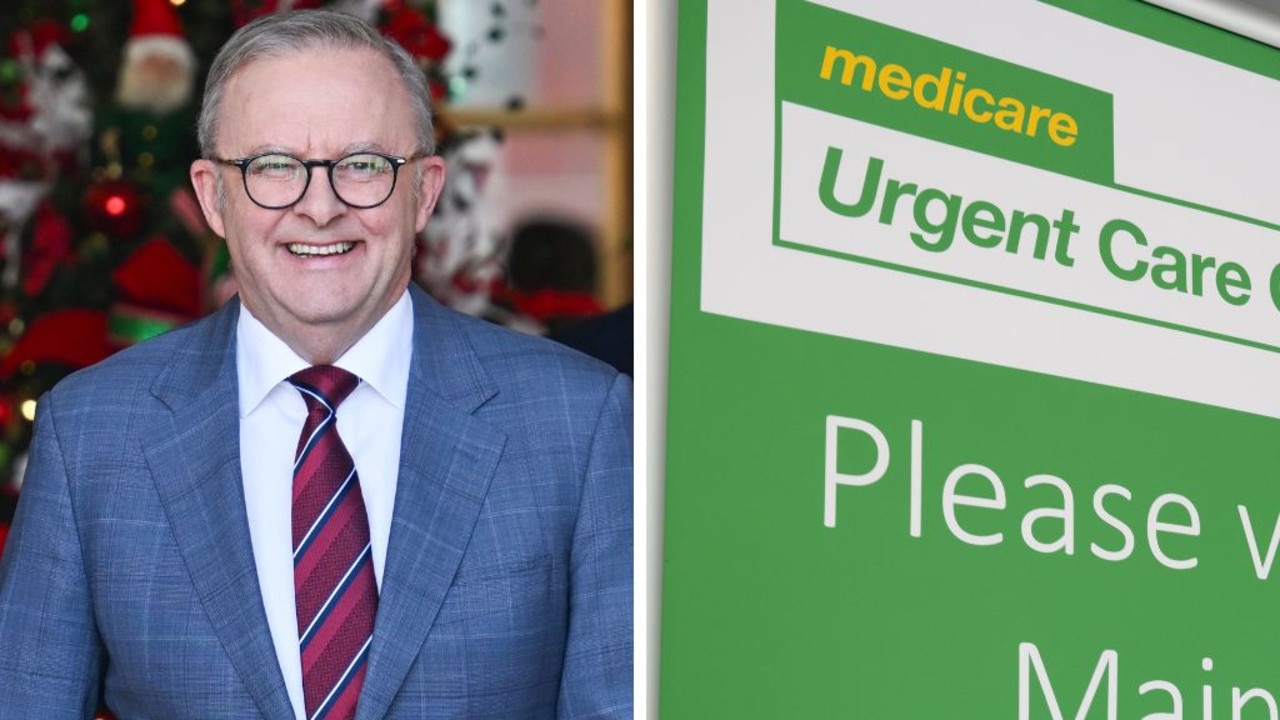Morrison government’s voter legislation to lock Indigenous communities out of election: advocacy groups
Laws anticipated to pass before the next federal election are feared to leave one group ‘disenfranchised’ and unable to have their say.

The Morrison government’s proposed voting law amendments have been blasted as “Trumpian”, with fears enhanced identification measures will leave a large portion of Indigenous Australians unable to have their say.
The Coalition hopes its voter integrity bill will sail through parliament in time for the 2021 federal election, which will force citizens to provide identification before casting their vote.
It has led advocates to fear the measure will create a huge barrier to participate in the democracy.
Aboriginal and Torres Strait Islander people disproportionately struggle to obtain basic documents, such as birth certificates and driver’s licenses.
Forcing voters to provide identification on election day would only serve to further alienate a community already disenfranchised by government policy, Indigenous advocacy Change the Record co-chair Cheryl Axleby warned.
“It sends a message to our communities about the barriers to exercise their right to vote,” the proud Narungga woman told NCA NewsWire.
“It’s an attack on democracy. The legislation is very Trumpian because it will take the right away from citizens to cast their vote.”

Change the Record has led a chorus of major advocacy groups opposing the legislation, including Amnesty International, the Human Rights Law Centre, and various specialised legal and social services.
Ms Axleby said the restriction to voter access compounded the disempowerment still lingering on Australia’s First Nations people from the horrific events of the Stolen Generation.
“It's been really difficult for some of our community members to actually get their documentation,” she said.
The network of advocates questioned why Australia’s widely admired electoral process requires change, given its comparatively high rates of participation.
But Liberal Senator James McGrath, who chairs Parliament’s Joint Committee on Electoral Matters, notes Australians are required to produce identification for a variety of day-to-day tasks including driving, collecting a parcel or opening a bank account.

“Thirty-seven votes decided the winner of the Herbert electorate in 2016,” he said in a statement to NCA NewsWire.
“Every vote counts in these elections and we think any measure to improve election integrity can only be a good thing.
“It is time we treated our democracy with at least the level of gravity as a visit to the surf club.
“This simply ensures that everybody who is entitled to vote is able to do so — it will lessen the impact of multiple voting, whether deliberate or accidental, and not exclude a single eligible voter from our democratic process.”
Senator McGrath said there were more than 2100 instances of multiple voting instances in the 2019 federal poll, but the Australian Electoral Commission confirmed nearly 750 of those were attributed to general confusion or errors from elderly citizens.
Only 24 instances were referred to the Australian Federal Police and none were prosecuted.

Under the proposed laws, a voter can vouch for another who is unable to present identification or a declaration vote can be submitted.
The electoral officers will accept a range of identification types including a passport, Medicare card, motor vehicle license or electricity bills.
But shadow spokeswoman for Indigenous Australians, Linda Burney, said this expectation of basic identification was fanciful.
“What it says to me is there is no understanding — or maybe cynically, a good understanding — of just how remote and how disenfranchised these people are,” she said.
“Most people don't have an address, people get their mail sent to the local health clinic or somewhere central — there’s no street names or numbers for houses in the way we think about it in the city.
“People are lucky enough to have a wallet, let alone an ID.”
Ms Burney told NCA NewsWire she was concerned “there is a really sinister reason behind this” policy.
“I think this is a deliberate attempt to disenfranchise Aboriginal people in the bush, absolutely,” she said.




